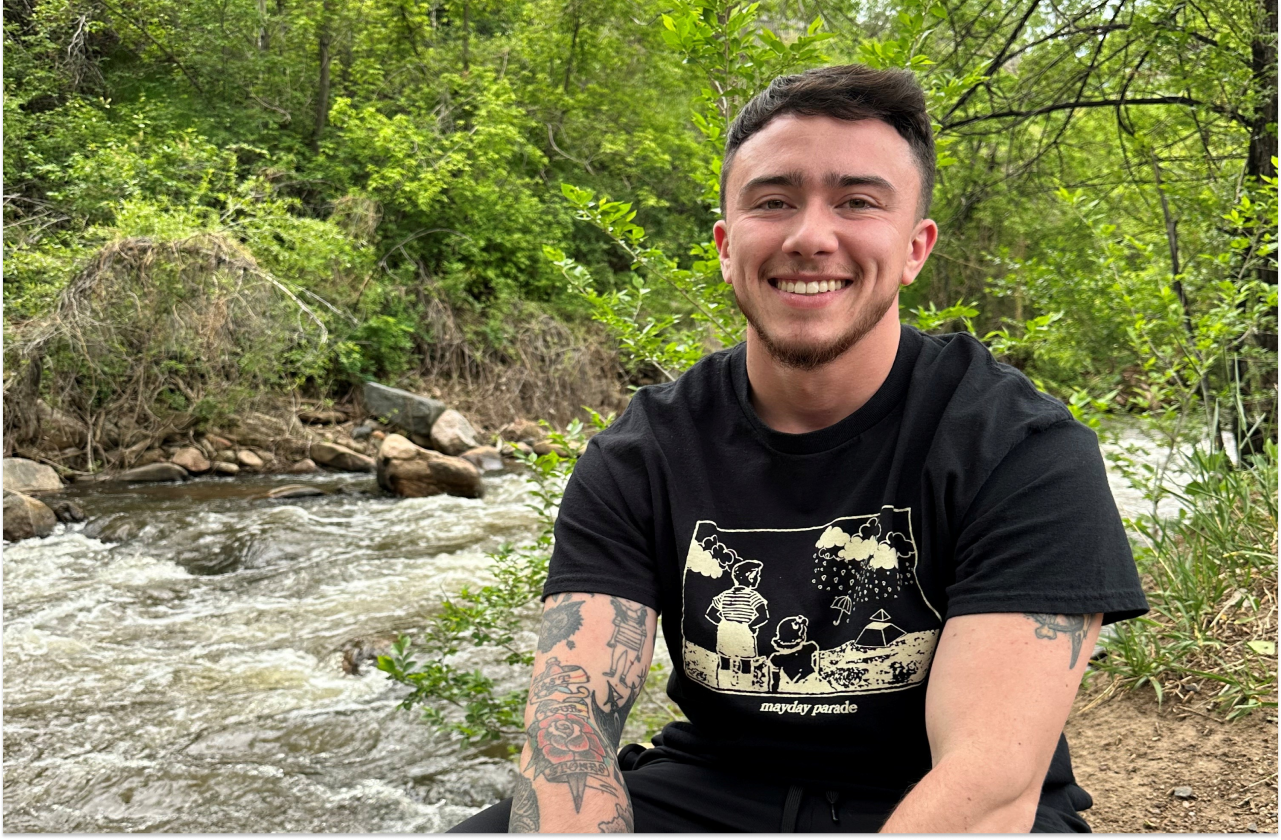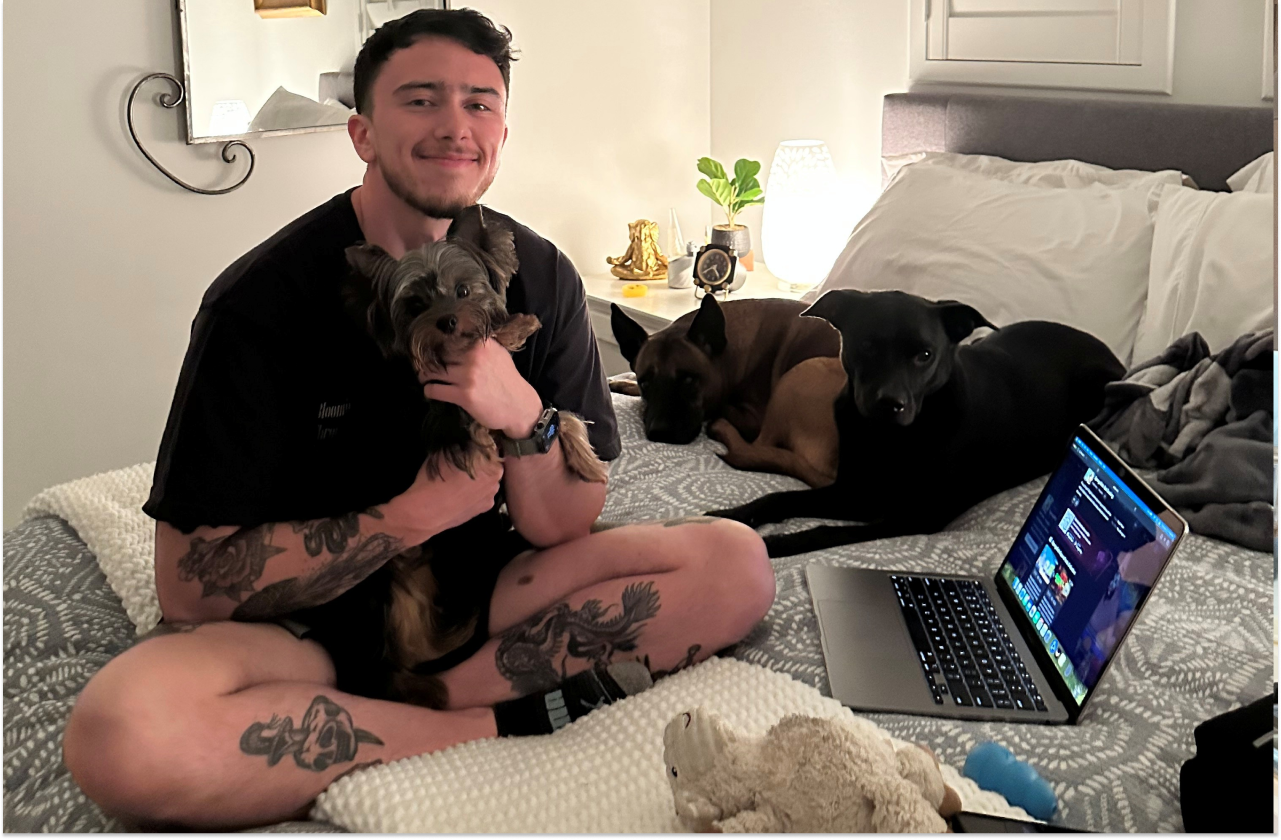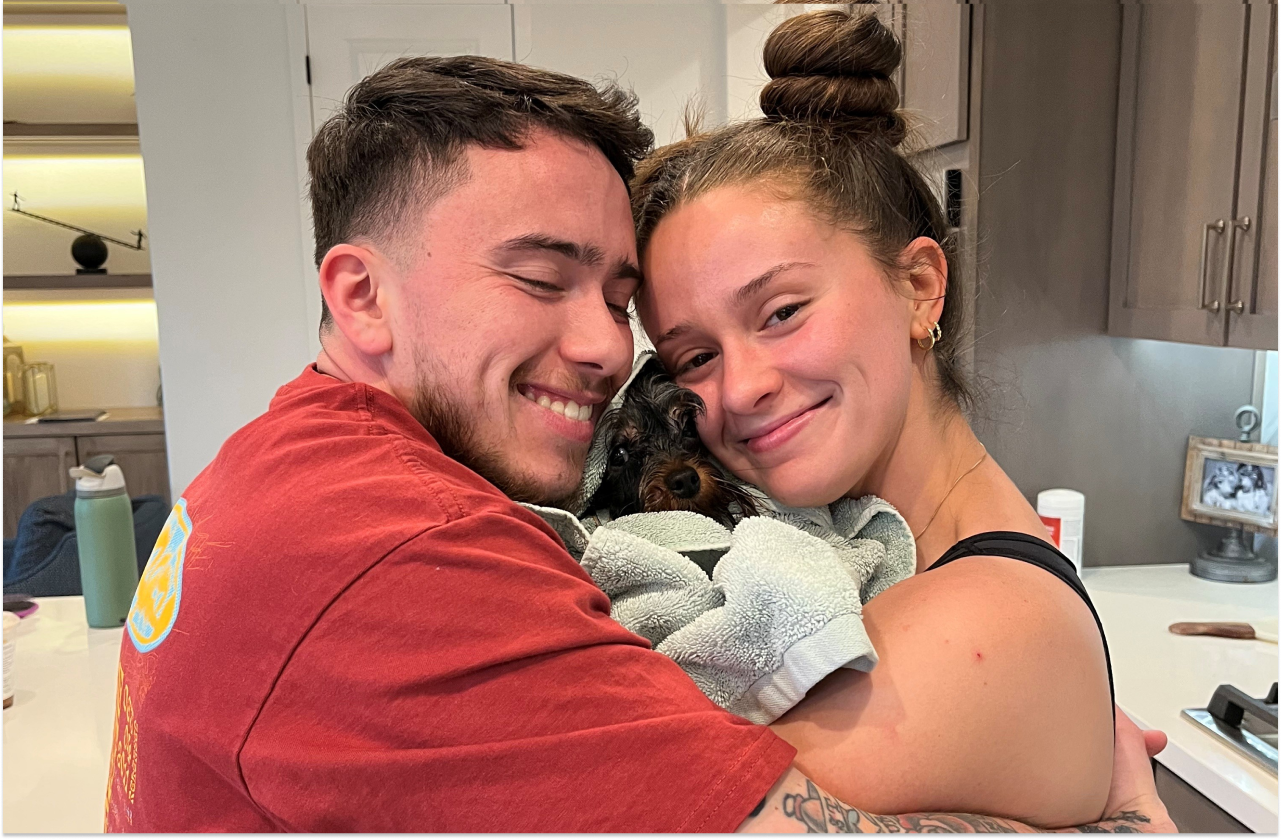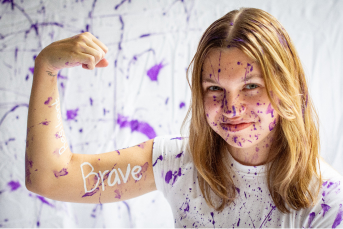
For Hunter, advocacy isn’t just a word - it’s a way of life. From building a mental health page on social media to finding strength through transition and a new epilepsy diagnosis, his story is one of courage, connection, and hope. In this interview, Hunter opens up about his passions, his challenges, and how community support has helped him keep moving forward.
What are you passionate about in life?
I’ve been working in a dispensary for about seven years and doing social media for over a decade. It started with a black-and-white quote account (@MilesfromSafety) about mental health - I just wanted people to know they weren’t alone.
Over time, people wanted to know who was behind the page, so I shared my story. That process helped me discover myself and gave me the courage to transition. The support I received online was incredible - I truly don’t think I’d be here without it.
Now, I keep sharing my life so others feel less alone. My epilepsy journey is newer, but it’s shown me another amazing community of people who support and understand each other.
Read more: How to find epilepsy support groups
What does advocacy mean to you right now?
It means everything. There are so many people who don’t feel supported - and I’ve felt that too, even within my own family. That’s why I put my energy into spreading love and understanding through the trans and epilepsy communities, and even in my everyday work.
When people come into the dispensary, I want them to feel welcome and cared for. Sometimes one kind conversation can completely change someone’s day, and that’s what I try to offer.
How did your epilepsy journey begin?
It started with what I now know were auras at the gym - sudden waves of anxiety and heat that made me feel faint. One day I went home early, and that’s when I had two tonic clonic seizures (formerly known as grand mal). Thankfully, my girlfriend came home during the second one and got me to the ER.
At first, doctors dismissed it. They didn’t take it seriously, and that lack of empathy really discouraged me. It took a few more seizures before I was finally diagnosed and put on medication. Now, I have a great neurologist who actually listens - but I wish that compassion had been there from the start.
Learn more: 20 questions about epilepsy to ask your neurologist

How has it been advocating for yourself in care?
It’s been challenging. My neurologist and their team are wonderful, but navigating medications and side effects can be overwhelming. Sometimes I just want someone to tell me what to do instead of being asked to decide.
My type of epilepsy is medication-resistant, so finding what works has been a process. Some meds made my mood drop to a really dark place - which was scary after all the progress I’ve made in life. But I’ve kept going and things are improving.
I’ve lost about 35 pounds and haven’t been able to work out for months, which has been tough since fitness was a huge part of my life. I’m hopeful things will balance out so I can get back to it soon.
Learn more: Epilepsy and depression
Who supports you through it all?
My girlfriend is my rock. We’ve been together three years, and she’s my biggest support - always making sure I’ve got my rescue meds, that I eat, that I’m okay. Even on my hardest days, she lifts me up.
My pets are a huge comfort too. They seem to sense when something’s off and stay close when I’m unwell. I’ve also got a small circle of amazing friends, my cousins and a supportive online community that’s been following me since 2012. Even one kind message from someone saying my posts helped them means the world.

What advice would you give to someone newly diagnosed?
Find your community. Whether it’s online groups, forums, or social media - there are so many people out there who understand exactly what you’re going through.
It might feel isolating at first, but you’re never alone. There’s a whole community ready to lift you up and help you find strength, even on your hardest days.
You can connect with Hunter and follow his journey on Instagram at @hknter.
Share your story
If you would like to share your epilepsy story with our team, contact us on contact@epsyhealth.com.

















